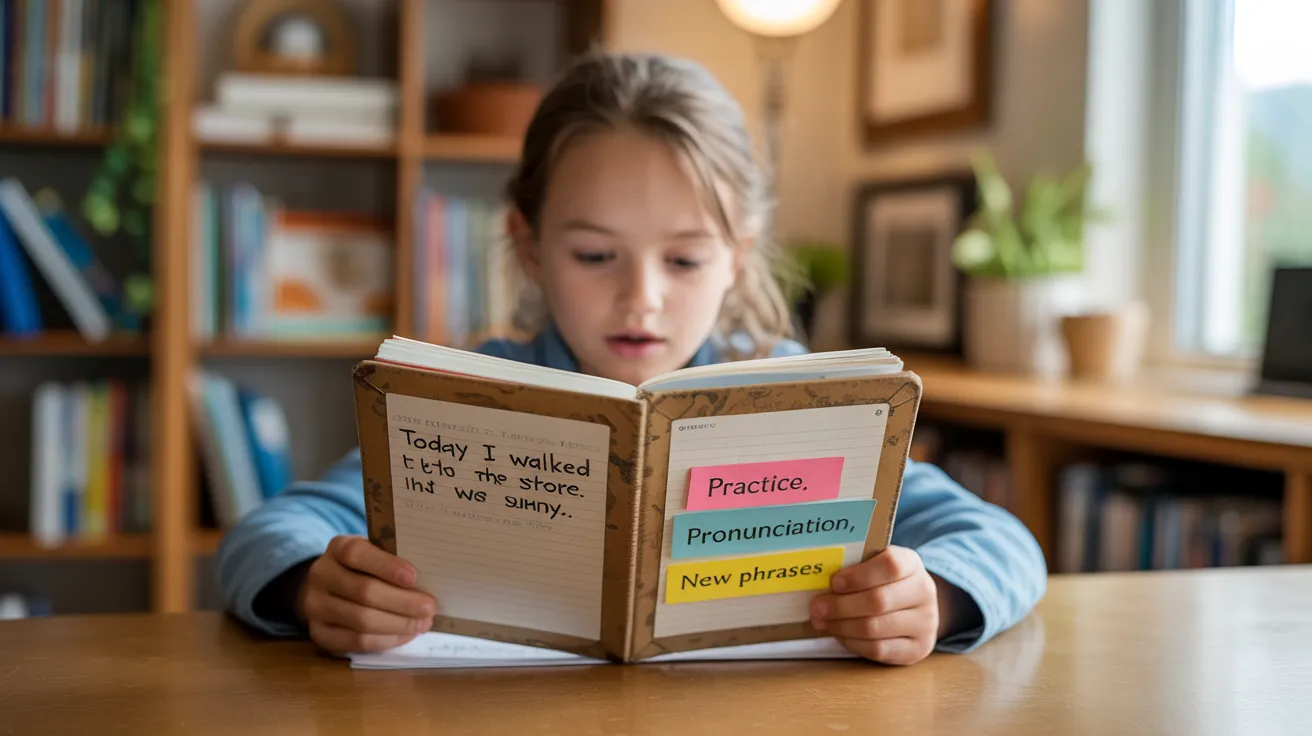Articulating with Precision in Everyday English Conversation
Articulating with Precision in Everyday English Conversation
Clear, confident speech isn’t just a soft skill; it’s a life skill. Whether you are trying to explain an idea at work, ask a question in class, or make small talk with a new friend, your ability to handle an English conversation matters. It shapes how people perceive you and how effectively you get your message across.
But here’s the truth: you don’t need to memorize endless rules to speak English fluently. You need consistent speaking practice, exposure to real dialogue, and practical tools that make you comfortable in everyday situations. Whether you are a beginner just starting your journey or an advanced speaker polishing your speaking skills, this guide will walk you through how to improve your English speaking and communicate with clarity and ease.

Why English Conversation Practice Builds Lasting Fluency?
Learning grammar and vocabulary is important but fluency comes from using them. Practicing real, day-to-day English conversations is one of the most effective ways to turn passive language knowledge into active communication. Conversation-based English practice is so powerful because:
Frequent practice helps you develop natural speaking patterns and reduces hesitation.
Real conversations sharpen both your listening skills and your speaking at once.
The more you practice speaking English, the more confident you will feel using it in public or professional settings.
From ordering food to presenting in meetings, most situations require English speaking more than writing or grammar drills.

Practical Tips for Effective English Speaking Practice
Building strong English speaking skills doesn’t require perfect grammar or expensive programs. What it needs is regular practice, self-awareness, and a few proven strategies that focus on what really matters: fluency, pronunciation, and confidence. Here are some tips for effective English conversation:
Set goals with intent: Focus on small, actionable targets. For example: “This week I’ll use 5 new phrases in daily conversation,” or “I’ll work on asking better questions.”
Record your voice: This may feel awkward at first, but it’s one of the best ways to identify issues with pronunciation, pacing, and clarity. Listen back and note any words or sounds you consistently struggle with.
Shadow native speakers: Choose a podcast, YouTube video, or audiobook. Pause after each sentence, mimic the rhythm and tone, and talk out loud. This technique trains both listening and speaking together.
Join speaking groups: Look for online clubs, community forums, or virtual classrooms focused on English speaking practice. Speaking with others boosts comfort, especially when you are afraid of making mistakes.
Read aloud from a journal: Keep a simple daily diary in English. Then, read your entries out loud. This connects writing, reading, and speaking, reinforcing all your language skills at once.

Daily English Conversation Practice Ideas for Every Level
One of the biggest mistakes learners make is practicing above or below their current language level. For speaking skills to really stick, your practice should match your ability. Here’s how to approach daily conversations depending on whether you're a beginner, intermediate, or advanced speaker.
Beginner Conversations to Build Comfort and Vocabulary
If you are just starting out, don’t worry about sounding perfect. Focus on building confidence, learning new words, and mastering everyday phrases. Topics and strategies for beginners:
Practice greetings, introductions, and daily routines like brushing teeth or shopping.
Use apps or fun games with visuals to connect words and pictures especially if you are coming from a preschool or kindergarten level.
Say your name, your favorite food, the weather today; basic, repeatable topics are ideal.
Repeat sentences like “I like apples” or “This is my bag” until they feel natural.
Try listening to simple conversations on YouTube or using English learning channels for beginners.

Intermediate Conversations to Improve Structure and Flow
At this level, your goal is to link thoughts together clearly. You will want to focus on sentence structure, fluency, and using useful phrases in a natural tone. Try these ideas:
Role-play daily tasks: making appointments, asking for help, giving directions.
Summarize your day to a friend or into a voice recorder. Focus on full sentences.
Practice expressing simple opinions like “I think this movie was exciting because...”
Add variety to your vocabulary using connectors like “because,” “so,” and “although.”
Listen to podcasts and then talk about what you heard in your own words.
Advanced Conversations to Sharpen Precision and Expression
Now’s the time to refine your ability to speak English fluently with style and accuracy. Advanced learners should focus on word choice, pronunciation, tone, and precise phrases for academic or professional conversations. Some recommended activities:
Debate a topic with a friend, using formal speaking patterns.
Watch a video (like a TED Talk) and analyze the speaker’s tone, phrasing, and pauses.
Give short presentations on topics you enjoy, record them and review for clarity.
Read op-eds or news stories and practice summarizing and responding.
Talk about abstract ideas: ethics, science, future goals. This stretches your language skills beyond the basics.

So many learners say, “I understand English, but I’m too afraid to speak it.” Sound familiar? You’re not alone. The fear of being judged or making mistakes is one of the biggest hurdles. But you can overcome it with support, reflection, and progress tracking. Some ways to build confidence are:
Celebrate small wins (e.g., using 5 new words today)
Talk to people who encourage your learning, not correct every detail
Keep a speaking journal with voice notes and reflections
Join online groups where community support is built in
Confidence doesn’t come first, practice does. And with practice, confidence grows naturally.

Conclusion
Learning to speak English fluently isn’t about being perfect; it’s about being understood. It’s about speaking up, trying again, and growing more confident with each conversation. Whether you're working on pronunciation, expanding your vocabulary, or just trying to get comfortable saying “hello,” every bit of English practice helps.
The key is consistency. Speak daily. Listen, observe, talk, and reflect. Use mistakes as stepping stones, not obstacles. Over time, you’ll notice how much clearer, quicker, and more precise your English speaking skills become.
So start today. Pick a topic, speak aloud, and enjoy the journey toward confidence and fluency.
English Conversation Practices – FAQs
Why is English conversation practice essential for improving spoken English?
Practicing English conversation builds fluency, improves natural speech flow, and helps learners apply grammar, vocabulary, and pronunciation in real-time. It also boosts confidence and teaches students to adjust to different speaking contexts whether casual, professional, or academic. Without regular speaking practice, learners may understand English but struggle to communicate effectively.
How to speak fluently in English language through daily practice?
To speak English fluently, start small and practice daily. Focus on familiar phrases, talk out loud about your routine, and gradually increase sentence complexity. Combine listening to native speakers with repetition, reading aloud, and joining speaking groups. Daily habits like journaling, summarizing, and shadowing help transform your passive vocabulary into active use.
What are some effective ways to practice English speaking every day?
Daily speaking practice should include reading aloud, shadowing videos or podcasts, and spontaneous speaking tasks. Use a mirror or voice recorder to monitor your pronunciation and tone. Join online conversation groups, participate in virtual English classes, or talk to yourself about your day. Even 10–15 minutes a day can create measurable progress.
How do I choose English conversation topics based on my skill level?
Beginners should stick to simple, everyday topics like food, weather, or family. Intermediate learners can try hobbies, weekend plans, or current events. Advanced speakers should tackle abstract topics—ethics, opinions, or debates, to challenge their vocabulary and structure. Choose topics that feel familiar but offer room to expand your language use.
What kind of practice helps intermediate learners the most?
At the intermediate level, learners should focus on improving sentence flow, grammar precision, and expanding vocabulary. Try speaking about past experiences, giving directions, or sharing opinions. Use conversation connectors like “however,” “also,” and “because” to add depth. Listening to native-level conversations and summarizing them in your own words is also very effective.
What English conversation topics help beginners build vocabulary and confidence?
Topics like greetings, daily routines, shopping, colors, and food help beginners learn essential words and phrases. These topics are relatable, visual, and repetitive, making them perfect for practicing pronunciation and listening. Using picture books, short dialogues, and real-life simulations can help turn vocabulary into confident, usable speech.
Comments
Your comment has been submitted